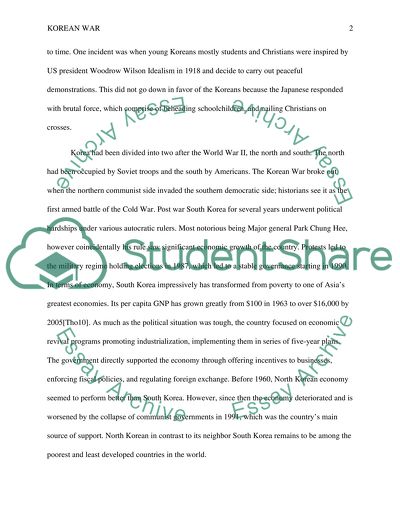Korean War Essay Example | Topics and Well Written Essays - 250 words. Retrieved from https://studentshare.org/history/1611295-korean-war
Korean War Essay Example | Topics and Well Written Essays - 250 Words. https://studentshare.org/history/1611295-korean-war.


